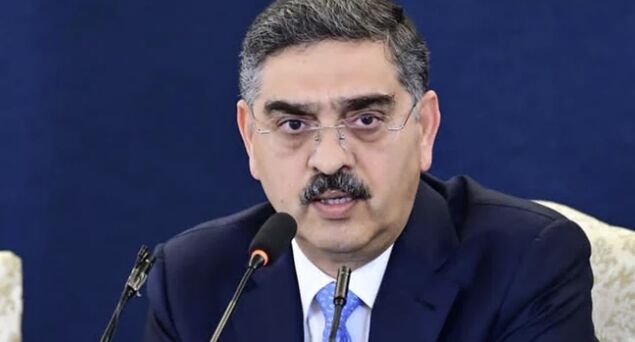Pakistan Sets Sights on $60-70 Billion Foreign Investment Boom with New Initiative
Interim Prime Minister announces Pakistan's expectation of $60-70 billion in foreign investment over the next few years through the Special Investment Facilitation Council (SIFC) initiative.
Interim Prime Minister Anwaar-ul-Haq Kakar has announced that Pakistan is expecting an estimated $60-70 billion in foreign investment over the next three to five years. This investment is anticipated under the government's new initiative, the Special Investment Facilitation Council (SIFC), a civil-military joint initiative launched by the previous government. Kakar emphasized the "huge appetite for investment" in Pakistan and highlighted the potential for additional investments, which could bring the total amount to nearly the same value. He mentioned that Pakistan has mines and minerals worth $5-6 trillion, with the reserves at Reko Diq in Balochistan alone valued at $700 billion.
Kakar also highlighted the potential in various sectors, including agriculture, IT, and defense production. The SIFC has developed a website to provide up-to-date information on current joint ventures and future investment opportunities. Kakar believes that the initiative will help exploit the potential in areas such as mines and minerals, agriculture, information technology, and defense production. He mentioned Pakistan's vast agricultural land, which could serve as a source of food for half of Asia's population, and dismissed the notion of water shortage for irrigation purposes.
While the core responsibility of the caretaker government is to facilitate elections, Kakar stressed that they are also focused on improving the taxation mechanism and addressing economic challenges. He acknowledged economic migration but stated that those leaving the country would eventually contribute to Pakistan's economy. The Prime Minister also addressed the issue of inflated electricity bills, ensuring that a solution would be found within the next 48 hours. He highlighted the challenges faced by the power sector and stressed the government's commitment to fulfilling agreements with international financial institutions such as the International Monetary Fund.
In addition, the foreign ministry held a session for resident Diplomatic Missions in Islamabad to introduce them to the Special Investment Facilitation Council. Dr Jehanzeb Khan, Special Assistant to the Prime Minister on Government Effectiveness, presented investment opportunities in Pakistan, particularly in the areas of IT, agriculture, energy, and mining. The diplomatic missions were encouraged to inform and encourage their countries to benefit from Pakistan's status as a resource-rich country. The SIFC was established as a "One-Window" platform to expedite decision-making and facilitate foreign direct investment in the country.




